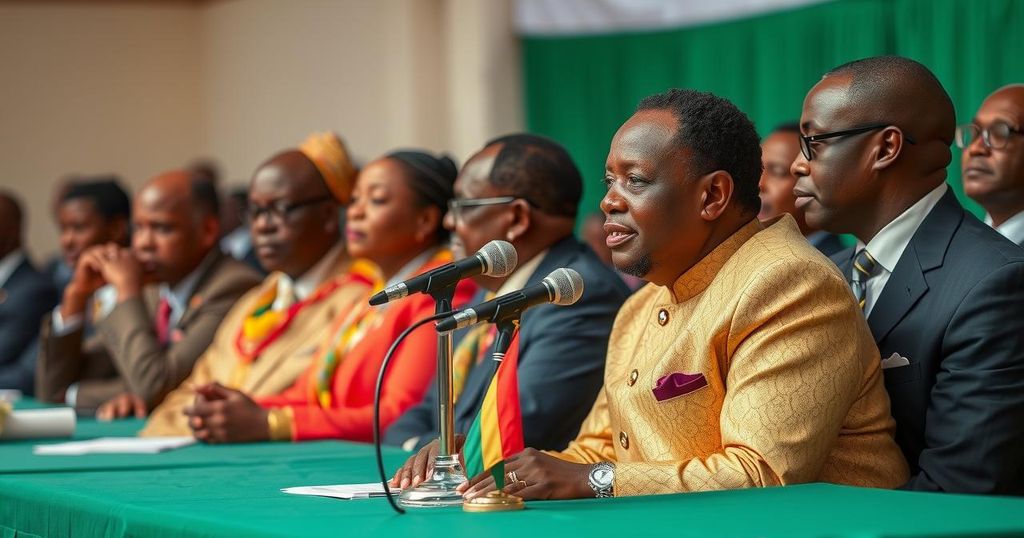Mozambique is set to swear in a new parliament amid protests over disputed election results. Opposition leader Venancio Mondlane claims victory and has called for demonstrations. Two opposition parties are boycotting the session, criticizing the electoral process as unfair. The ongoing unrest has led to fatalities and economic disruptions, highlighting significant tensions within the country.
Mozambique is preparing to inaugurate a new parliament on Monday amidst ongoing tensions following an election marred by allegations of fraud. Opposition leader Venancio Mondlane, asserting victory in the presidential race, has urged his supporters to engage in peaceful demonstrations through Wednesday, coinciding with the planned inauguration of President Daniel Chapo. The opposition parties Renamo and MDM have declared their intention to boycott the parliamentary session, criticizing the election process as non-transparent and disrespectful to the will of the Mozambican populace.
Mondlane maintains that he received 53 percent of the votes in the presidential election, contrasting sharply with official results that reported his count at 24 percent against Chapo’s 65 percent. His return from a two-month exile last week was marked by a significant rally of his supporters, which resulted in violent clashes with police, leading to fatalities. He called for a national strike to protest the election outcomes and emphasized the importance of demonstrating the people’s discontent regarding what he termed electoral theft.
The political climate in Mozambique has been fraught with unrest following the October elections, which the opposition decries as fraudulent. The ruling Frelimo party, in power for five decades, faces allegations from the opposition that it manipulated the results to maintain its dominance. The ongoing protests and subsequent clashes have heightened tensions, leading to regrettable loss of life and economic disruptions across the nation. The situation highlights the fragility of democratic processes in the country and raises critical questions about governance, civil rights, and electoral integrity.
In conclusion, Mozambique stands on the brink of significant political unrest as the new parliament is sworn in following highly disputed elections. The refusal of major opposition parties to participate underscores profound discontent within segments of the populace concerning the electoral process. As tensions continue to escalate, the calls for peaceful protests reflect the determination of opposition leaders to contest the legitimacy of the election outcomes and to advocate for a more transparent and fair political landscape.
Original Source: www.voanews.com






